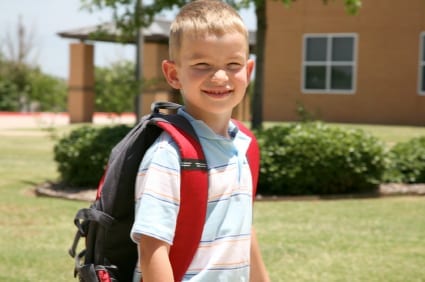 When tragedy happens we need to learn from it.
When tragedy happens we need to learn from it.
There is only one person to blame for the senseless death of Leiby Kletzky, an innocent 8-year-old boy, – the predator monster that stole his precious life. As I spent the day angry, outraged at the madness of it all, my heart breaking for his family and community I still can’t help but know – this was an avoidable tragedy, little Leiby didn’t not have to die at the hands of an utterly deranged killer.
Please note I do not blame his parents nor do I blame the camp… They were doing what they thought in the best interest of the child. But I will ask some questions as we all move on with our lives and continue to parent our own children, what could we learn from this? Perhaps the thought runs through your mind that it could never happen to your child. Let me tell you, it could happen to anyone’s child: city dweller, rural community, suburbia in a gated community, the predators aren’t choosy – they are opportunistic. Let’s teach our children life skills so they do not become easy prey for a predator.
What can we learn from this tragedy?
1. Don’t have blind trust – just because you live in a community where you feel you know everyone doesn’t mean you should let your guard down.
2. If teaching your child a new route to walk (like at the beginning of the school year), take the route numerous times together. While taking this quality time with your child (and yes one might have to sacrifice something else to walk through this process with your child) cover the following topics:
a. Always take the same route
b. Stay on the sidewalk
c. Point out various safe places to go to – stores, specific people’s homes, along the way – if for any reason the child feels unsafe. (Perhaps severe weather issue.) Please don’t forget to let your friends or neighbors know that they have been designated as a “safe place” for your child to turn to.
d. Teach your child repeatedly that there is absolutely no reason for an adult that you do not know to ask you for help. They should be asking another adult. AND if you are assuming that your child is old enough to walk alone then they are also old enough to understand the words abduction and predator, so share with them about the safety issues they could face when taking on this new responsibility. If you are thinking, “I don’t want to scare my child.” Then ask yourself if you and your child are ready for this.
e. Teach your child that if approached by a car or on foot by anyone he should take 5 steps back (making himself less easy to grab – and not to wait around to be engaged in conversation but to yell NO and run and tell a trusted adult what is happening) Note to your child that you have taught them to be polite – but this type of situation they have permission to Yell NO! and get away – which to your child my seem rude, so practice with them actually using a loud assertive voice to say NO!
f. Use the buddy system. It is always safer, even for adults, to travel in numbers.
g. Most importantly – TRUST YOUR INSTICNTS as you ask your child, from your heart, if they feel ready for their new responsibility. Don’t just listen to their words, as they will probably say what they think you want to hear, listen and feel their body language, look into their eyes. Let your child know that is it okay if they are not ready, so they can feel off the hook and not pressured for this new responsibility.
h. Ask yourself: “Am I asking my child to take on increased independence because their older sibling was ready at that particular age?” Please remember there is no specific age for a child to be ready for increased independence. Ask yourself, “What have we taught our children about their personal safety so we feel confident that they can make the safest and smartest choice when given more independence?” If you feel your child is not ready, don’t give up, teaching life skills is a process, not a onetime conversation.
3. What would have happened if the camp had a policy stating all campers under a certain age need to be dismissed directly to an adult? Perhaps the parents would have expressed their inability to get to the camp and then back to the doctor’s office in time… maybe a counselor could have escorted him? (Buddy System)
4. Tell your child even if they know the person to NEVER go with them and ALWAYS stick with the plan arranged by you. As a family, come up a code word that your child can ask the person trying to change the plan. If they don’t know the word: Don’t go!
I am irate and deeply saddened by this senseless death. I do not want this precious innocent boy to have died in vain. I am begging all of you parents out there to think about this boy. Hug your children as you tuck them in tonight and take an active role in directly teaching your children personal safety. Don’t assume they know what to do. They don’t! We want to help you protect your children, so please visit our website www.kidsafefoundation.org for information on how to keep your children safe and teaching personal safety without creating fear in your children.
Don’t let this child die in vain.





